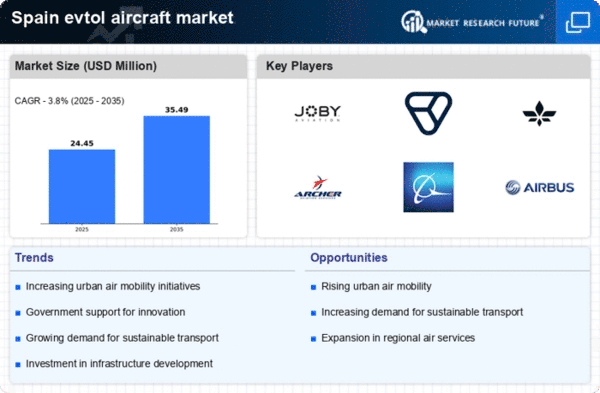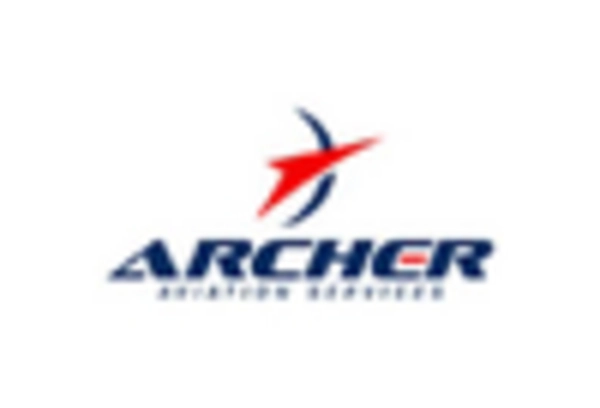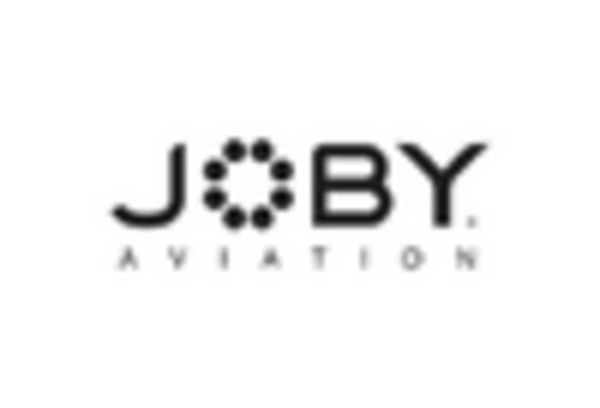Urbanization and Population Growth
Urbanization trends in Spain are contributing to the expansion of the eVTOL aircraft market. As cities like Madrid and Barcelona continue to grow, the demand for efficient transportation solutions becomes increasingly pressing. The population in these urban centers is projected to rise by approximately 10% over the next decade, leading to heightened traffic congestion and longer commute times. eVTOLs offer a potential solution to these challenges by providing rapid transit options that can bypass ground traffic. The Spanish government is likely to support the integration of eVTOLs into urban transport systems, recognizing their potential to alleviate congestion. This urbanization trend, coupled with the need for innovative transport solutions, suggests that the eVTOL aircraft market may experience robust growth in the coming years, driven by both public and private sector initiatives.
Investment in Infrastructure Development
The eVTOL aircraft market in Spain is poised for growth due to significant investments in infrastructure development. The Spanish government has announced plans to allocate €100 million towards the establishment of vertiports and charging stations across major cities. This investment aims to create a comprehensive network that supports the operational needs of eVTOLs, facilitating their integration into existing transport systems. Additionally, partnerships with private companies are likely to enhance infrastructure capabilities, ensuring that eVTOL operations are efficient and accessible. The development of this infrastructure is crucial for the market's success, as it addresses logistical challenges and promotes public acceptance of eVTOL technology. As infrastructure projects progress, the eVTOL aircraft market may witness accelerated growth, driven by improved accessibility and convenience for users.
Regulatory Framework and Safety Standards
A robust regulatory framework is essential for the growth of the eVTOL aircraft market in Spain. The Spanish aviation authority is actively working on developing safety standards and operational guidelines tailored for eVTOL operations. This regulatory support is crucial for ensuring public safety and fostering confidence in eVTOL technology. The European Union Aviation Safety Agency (EASA) has also been involved in creating harmonized regulations that could facilitate cross-border operations. As regulations become clearer, manufacturers may find it easier to navigate the approval process, potentially reducing time-to-market for new eVTOL models. This regulatory clarity is likely to encourage investment in the eVTOL aircraft market, as stakeholders gain confidence in the viability of their projects. Overall, a well-defined regulatory environment may serve as a catalyst for innovation and growth within the eVTOL sector.
Technological Advancements in eVTOL Design
The eVTOL aircraft market in Spain is experiencing a surge in technological advancements that enhance aircraft performance and safety. Innovations in battery technology, such as solid-state batteries, are expected to improve energy density and reduce charging times, making eVTOLs more viable for urban transport. Furthermore, advancements in autonomous flight systems are likely to increase operational efficiency and safety, addressing public concerns about pilotless operations. The Spanish government has been actively investing in research and development initiatives, allocating approximately €50 million to support eVTOL technology. This investment is anticipated to foster collaboration between aerospace companies and research institutions, ultimately propelling the eVTOL aircraft market forward. As a result, Spain may emerge as a leader in the European eVTOL landscape, attracting both domestic and international investments.
Growing Demand for Sustainable Transportation
The eVTOL aircraft market in Spain is significantly driven by the growing demand for sustainable transportation solutions. With urban areas facing severe congestion and pollution, eVTOLs present an eco-friendly alternative to traditional ground transport. The Spanish government has set ambitious targets to reduce greenhouse gas emissions by 55% by 2030, which aligns with the adoption of electric aircraft. According to recent studies, the eVTOL market could potentially reduce urban traffic emissions by up to 80% compared to conventional vehicles. This growing emphasis on sustainability is likely to drive investments in eVTOL infrastructure, such as vertiports and charging stations, further enhancing the market's growth. As public awareness of environmental issues rises, the eVTOL aircraft market may see increased acceptance and demand from both consumers and businesses.
















